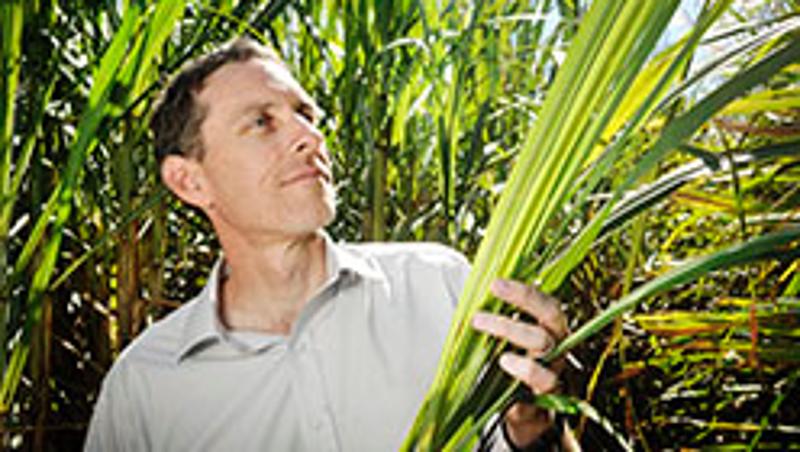
Australia has a multi-billion dollar opportunity to establish a new manufacturing industry based on biorefineries to create high-value products from agricultural wastes, according to a new study commissioned by QUT, officially launched by the Federal Minister for Industry, the Hon Ian Macfarlane MP today.
QUT is a leader in research and development into advanced biorefineries and innovative technologies to convert waste biomass into greener replacements for chemicals, resins, plastics and fuels.
QUT Vice-Chancellor Professor Peter Coaldrake AO said the study commissioned by QUT and undertaken by Deloitte Access Economics and Corelli Consulting provided the ideal launch-pad for this game-changing opportunity for Australian manufacturing, agriculture and regional economic development.
Professor Coaldrake also released QUT's blueprint for the new industry designed to ensure Australia was at the forefront of the next generation of biorefinery manufacturing.
QUT's Principal Research Fellow Associate Professor Ian O'Hara said biorefineries produce the base chemicals for products including drink bottles, home and personal care products, and fuels.
"There are enormous opportunities for biorefineries in Australia, with the markets for bio-based products expected to grow strongly to US$160 billion globally by 2020," he said.
The study, which estimates the economic impact from seven potential biorefinery projects in Queensland alone would be more than $1.8 billion annually and create more than 6,640 FTE jobs over the next two decades, highlights the potential for other regions of Australia, particularly Northern Australia.
Professor O'Hara said Australia had many strengths on which to build a biorefinery industry including large quantities of agricultural biomass, established infrastructure, and a stable government.
Professor Coaldrake said QUT was committed to taking the lead as the catalyst for the development of a new biorefinery industry in Australia.
"QUT is well known as 'the university for the real world' and we have a strong affinity with such projects which play to our core strengths in applied research, while enabling us to leverage our close links with business and industry," Professor Coaldrake said.
"We are proud to be building on our expertise in biorefinery research and development and look forward to playing a significant role in the industry's future in Australia."
QUT's research leadership in the field has been supported by its investment in world-class research facilities such as the $10 million Mackay Renewable Biocommodities Pilot Plant (MRBPP) which is based in the regional centre of Mackay in Queensland.
Professor O'Hara said for Australia to take advantage of the opportunities presented by biorefining, governments, industry, investors and researchers all had a role to play and success would depend on collaboration.
QUT's blueprint for the Australian biorefinery industry focuses on key areas including: creating business opportunities, developing and attracting the best technologies and people, developing biorefinery hubs, and supporting commercial developments.
The full QUT study Economic Impact of a Future Tropical Biorefinery Industry in Queensland, the blueprint and a two minute infographic are available at the university's Centre for Tropical Crop and Biocommodities at: http://www.ctcb.qut.edu.au/biorefinery
Media contacts:
Rowland: Bruce Ruddy, 0418 730 339
Minister Macfarlane's office: 02 6277 7070
QUT: Rose Trapnell, QUT media team leader, 07 3138 2361 or 0407 585 901 rose.trapnell@qut.edu.au




